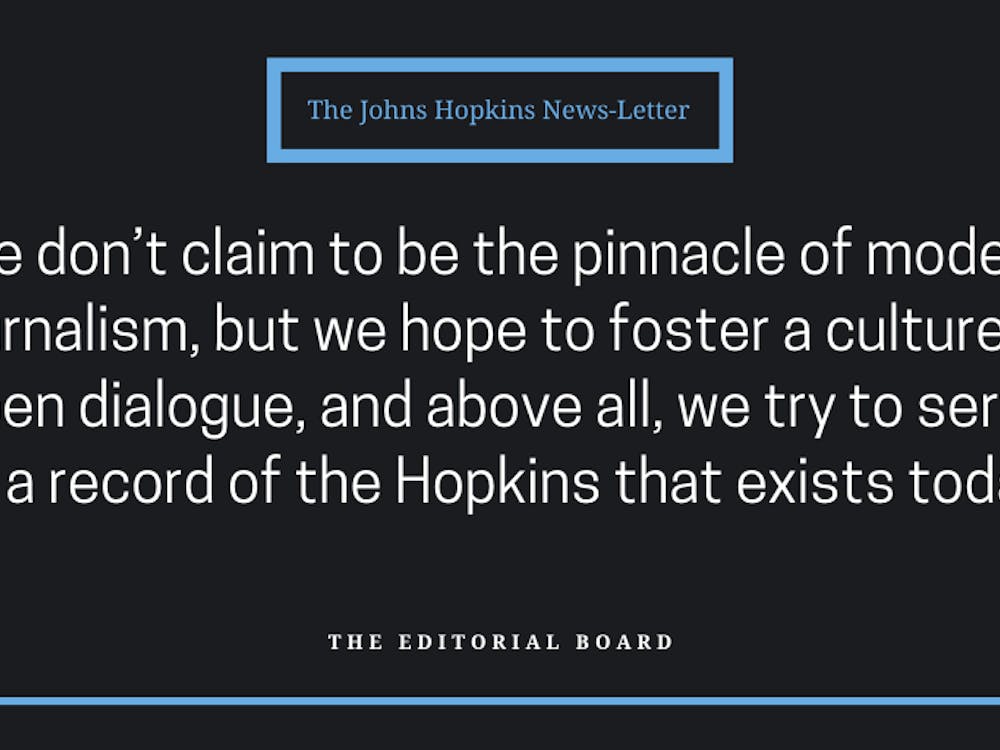For many of us, college is a fresh start. New friends, new teachers, new homes and, for most of us, a new city. But does it have to be?
I have some privilege in being from Baltimore County. My family can drop off pillows when I forget to pack them, and I’m familiar with the streets and already prepared for the unpredictable tease of a winter that is to come.
But I have one other privilege that to many might not seem like one: I’m still involved in my high school.
For many, staying involved in the often petty politics of high school life is exactly what they aim to avoid by going to college. You no longer have to concern yourself with the banalities of an SGA that exists only to plan parties, the passive-aggressive standoffs between administrators enforcing their dress code and young women wearing essentially normal clothing, the begrudged compliance of good teachers forced to comply with bloated curricula and the rat race of collecting extracurriculars like merit badges for college applications.
You’re in college now, where the SGA has power, the administration is too busy dealing with real problems to create a dress code, the professors are free to teach and the student groups — well, you might still be thinking about job or graduate school applications, but at least there’s enough variety that you’ll find ones you truly love.
But staying in contact with your high school can be very rewarding. All schools are, to varying degrees, communities. Communities grow through the experiences of their members. As someone who’s been through high school and who’s now at college, you have a significant library of experiences to draw from. As an active high school alumnus, you can improve the conditions at your alma mater and be part of a greater community.
This isn’t exactly a commonly held belief, but it isn’t a new one either. For decades, high school speech and debate leagues have successfully recruited their alumni, whether they’re at college or beyond. There’s a practical aspect to this — alumni make better judges than a random crop of parents, and a good judging corps is essential to a serious tournament. In fact, both major leagues hold their national tournaments after the end of most collegiate spring semesters.
But there’s a more abstract component as well; alumni have up to four years of experience with the high school forensics circuit and may now have experience in collegiate debate. They can serve as mentors and coaches for their former schools, recalling old trends and introducing new ones they’ve encountered at their new schools. Teams who have active alumni generally have greater organization and a sense of unity. They also tend to be better at fundraising.
Staying involved may be easier for some. Hopkins is a private institution recognized around the world, and as such, most of our students are not local. But keeping in touch has become easier with social networking. Many student groups in both high school and college communicate using Facebook groups. Simply deciding to remain in the groups of the organizations you were a member of in high school is an easy first step.
By staying involved through social media, you can continue to have an influence in the groups that meant so much to you. Whether it’s editing a case for someone on the forensics team, helping the ecology club brainstorm an event or advising the class officers on how to fundraise, your input can continue to help in the same way that it did in high school. Staying involved in student organizations from high school also demonstrates a commitment to the projects you were a part of.
Staying in touch with teachers is especially helpful to the school. If you write to your teachers to tell them how their subjects are taught at Hopkins, you’re giving them a data point. If your former classmates at other colleges do the same, those teachers now have a general idea of what they should be preparing their classes for, so that future students are better prepared for their first college experiences. AP curricula can be limiting, but if enough students write home saying that it’s important, a conscientious calculus teacher can certainly spend a little time covering the epsilon-delta limit definition, for example.
Your teachers are also valuable professional connections, and maintaining relationships with them is an excellent way to maintain a network in your hometown, in the same way that interacting with your professors here is an excellent way to build a network in your new environment.
Plus, everyone had those one or two teachers who stood out as truly amazing. Staying in touch with them keeps an important mentor in your life from slipping through the cracks.
As you move through the semester, consider reconnecting with students and faculty at your old high school. They’ll be happy to hear from you.
















Please note All comments are eligible for publication in The News-Letter.